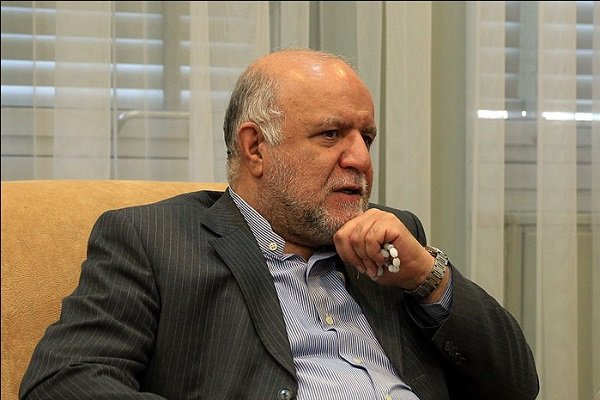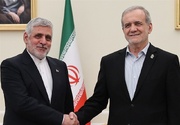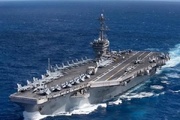Speaking in a televised interview on Wednesday evening and in response to a question about the possibility of fluid migration in joint fields, the Minister of Petroleum did not rule out this possibility, and said: “In some joint fields, the area of the field on the opposite side is much larger than ours. At the same time, it should be noted that despite the sanctions, in which no one is willing to work with us, great work has been done in various sectors of the oil industry and good capacities have been created.”
Technology could end oil age
Zangeneh, elsewhere, said the end of the oil age would be cause by the introduction of new technologies rather than the end of oil reserves, Shana quoted him as saying.
He underlined the role of technological advances in replacing new and renewable energies in the world, saying: "Personally, I think we should do our best to produce maximum oil; The development of technology is increasing day by day and we may reach a point where oil can no longer compete with new energies.”
He said oil revenues must be deposited in the national development fund of Iran (NDFI) so that the resources could be used for developing projects such as petrochemical plants, petro-refineries and other industries.
"If we do not produce oil today, maybe one day we will need to get international permission to sell oil (in terms of the environment)," he said. “We must also produce the maximum amount of natural gas, because endorsement of alternative energies by the society is not going to take a hundred years.”
Increased production capacity of joint oil fields
The Iranian Minister of Petroleum touched on the productivity and development of joint oil and gas fields, and said: "Our most important joint oil fields in terms of volume and importance of reserves are located in the west of Karoun River. Our daily production capacity in these fields in 2013 was about 70,000 barrels, which has now reached about 400,000 barrels; That means an increase of about 6 times in seven years.”
Zangeneh, stating that during this period only about 150 wells have been drilled in South Azadegan field, continued: “The daily oil production capacity of Azar joint field will soon reach 60,000 barrels and we will officially announce it; the contract for the development of Azar and West Paydar fields has also been signed; the contract for Forouzan and Resalat fields has also been signed in recent days in the form of engineering, procurement and construction (EPC).
He expressed hope that in the future, the daily oil production capacity the West Karoun fields cluster would exceed one million barrels, and said: “In this regard, recovery rate is very important because in this region due to special geology and fluid type, recovery rate is low and currently the Petroleum Institute of the University of Tehran is specifically studying the Azadegan field in order to find ways to increase oil recovery rate in this field. The results of the studies of this body show that a 10% increase in the recovery rate of Azadegan is possible.”
Drilling of the 1st South Pars phase 11 well by Fall
Zangeneh further referred to South Pars as the world’s largest gas reserve, saying Iran’s production capacity from the gas field was 280 million cubic meters back in 2013 which has now seen a 2.5-fold jump having reached 700 mcm/d.
He also said that during this period, 26 offshore platforms, 228 wells, 2,160 km of sea pipelines and 30 refining trains had been commissioned in the massive field.
Regarding Phase 11 development plan, he noted the withdrawal of Total and CNPC International from the project, adding Petropars, the Iranian partner of a consortium to develop the phase, is scheduled to drill the first well in the phase by fall.
“We hope that gas be transferred to onshore facilities within a year,” he said, adding the contract to develop Farzad gas field would also be signed this calendar year to March 20, 2021.
There is no going back
Referring to the significant progress of oil industry in Iran, Zangeneh said: "There is no going back. The oil industry, in terms of management, services and equipment, is not comparable to 20 years ago. At that time we could not do one meter of offshore pipe laying and now we can lay one kilometer of pipes into the sea in one day. Today we can build the most complex oil rigs inside the country. When Total held Phase 11 tenders, all the winners were Iranian companies, but due to Trump's malice, those contracts with Iranian companies were not enforced.”
Countdown starts for inauguration of largest APG processing facilities
In another part of his interview, the Minister of Petroleum said the operation of launching the largest facility for collecting and processing associated gases in Khuzestan province, namely the Persian Gulf Bidboland gas refining project, has begun in Behbahan. $3 billion has been spent to build the refinery which can receive about 2 billion cubic feet of gas, which is equivalent to two phases of South Pars, daily, and sweeten, separate and send them as feedstock petrochemical plants.
Oil Market and the Coronavirus
Asked about the future of the oil market due to the coronavirus pandemic and the global economic downturn, Zangeneh said: "The situation in the oil market has not recovered yet, but with the action taken by OPEC (Organization of the Petroleum Exporting Countries), which I think was an important step, Brent crude is now above $45 a barrel, which is not a price in jeopardy.”
Zangeneh noted that oil prices have now risen by more than $30 compared to May and that the continuation of this trend would depend on economic conditions.
"OPEC reports indicate that economic growth in countries other than China is negative and still this prediction has not changed given the circumstances of the corona outbreak.”
To the question that it is said that the United States wants to prevent export of Iran’s petroleum products to Venezuela, and has already seized a shipment, and whether Iran would still continue this cooperation under these circumstances, he stated: “Our cargo was not confiscated. The shipment belonged to Venezuela, we had sold it free on board (FOB).”
The Iranian Minister of Petroleum added: "The United States wanted to declare a success with this news and say that they have hit Iran, as if they needed it very much. After all, this is a war and both sides are working against each other.”
HJ/TSN2331524/Shana306267

























Your Comment